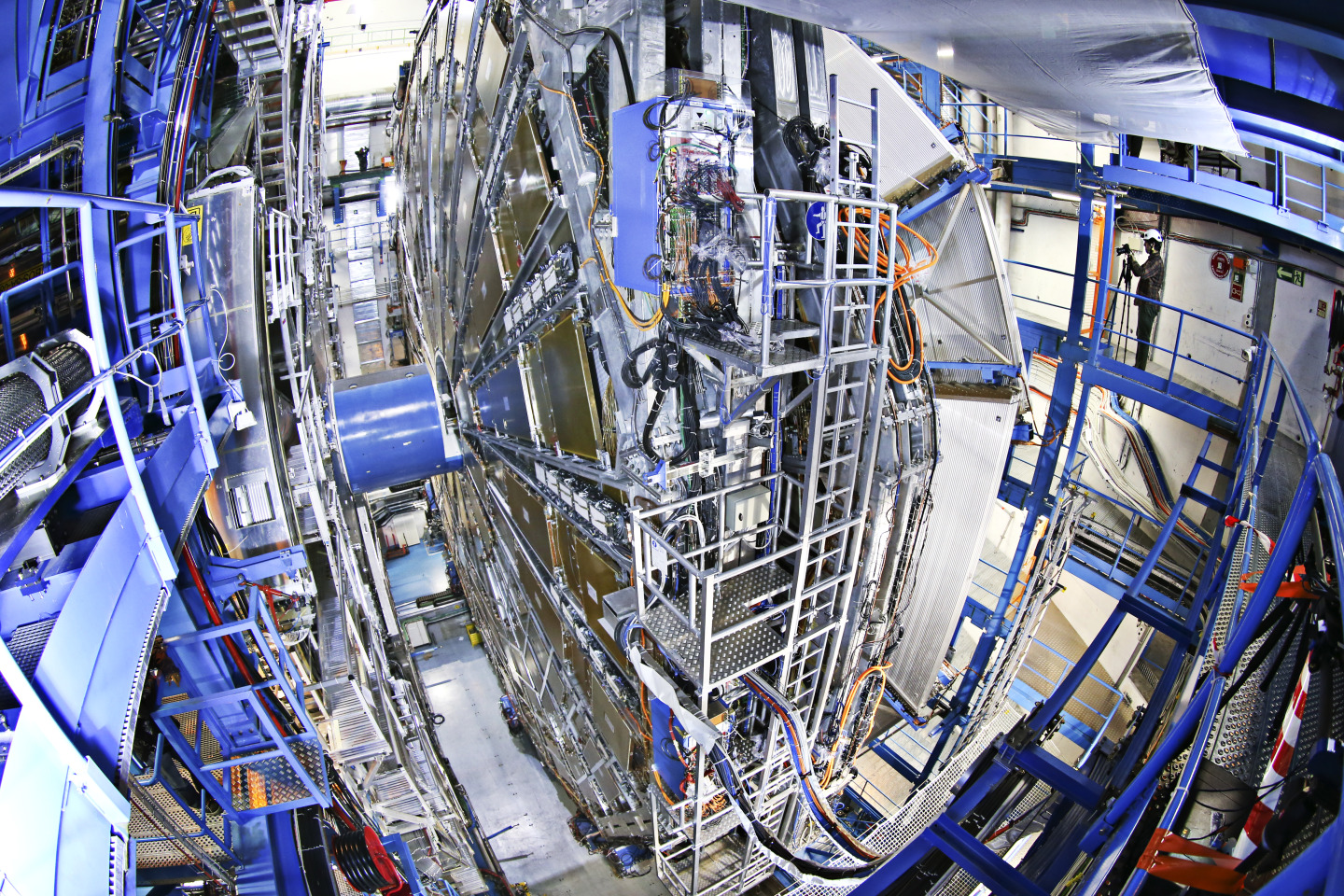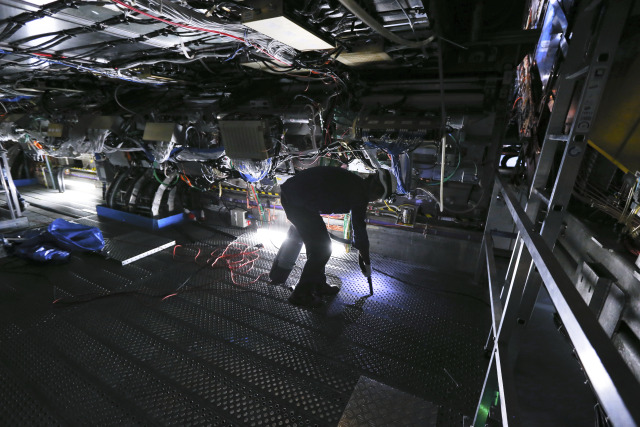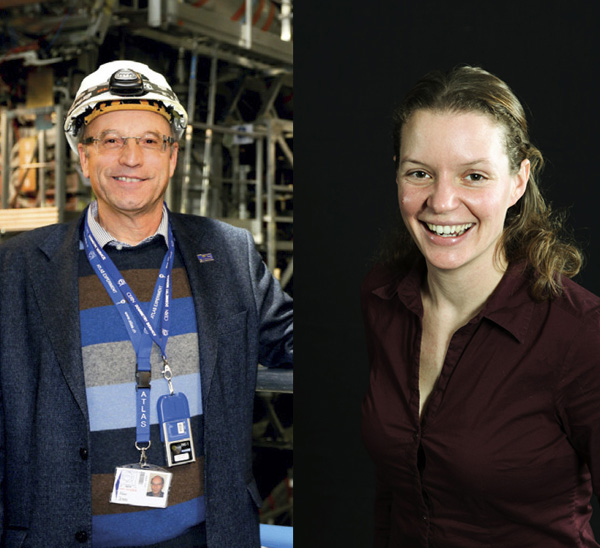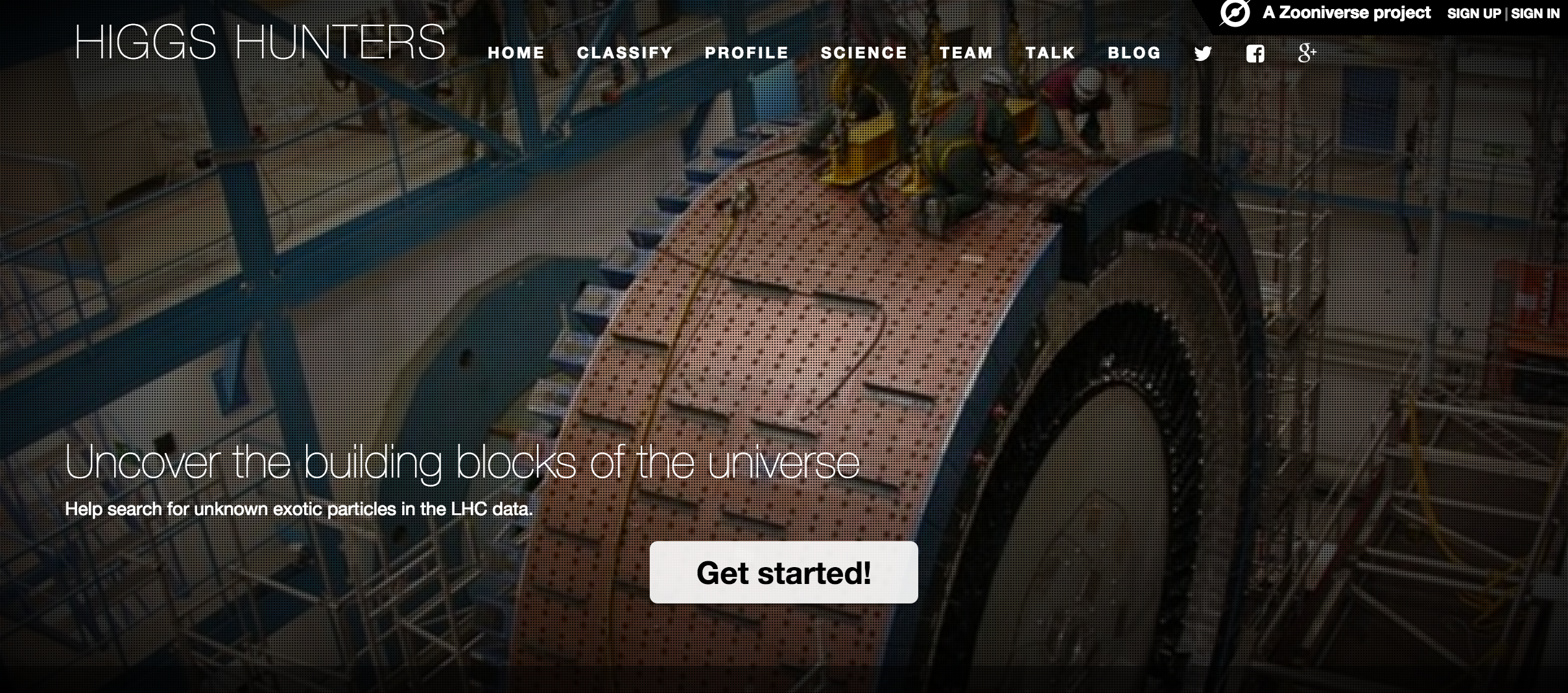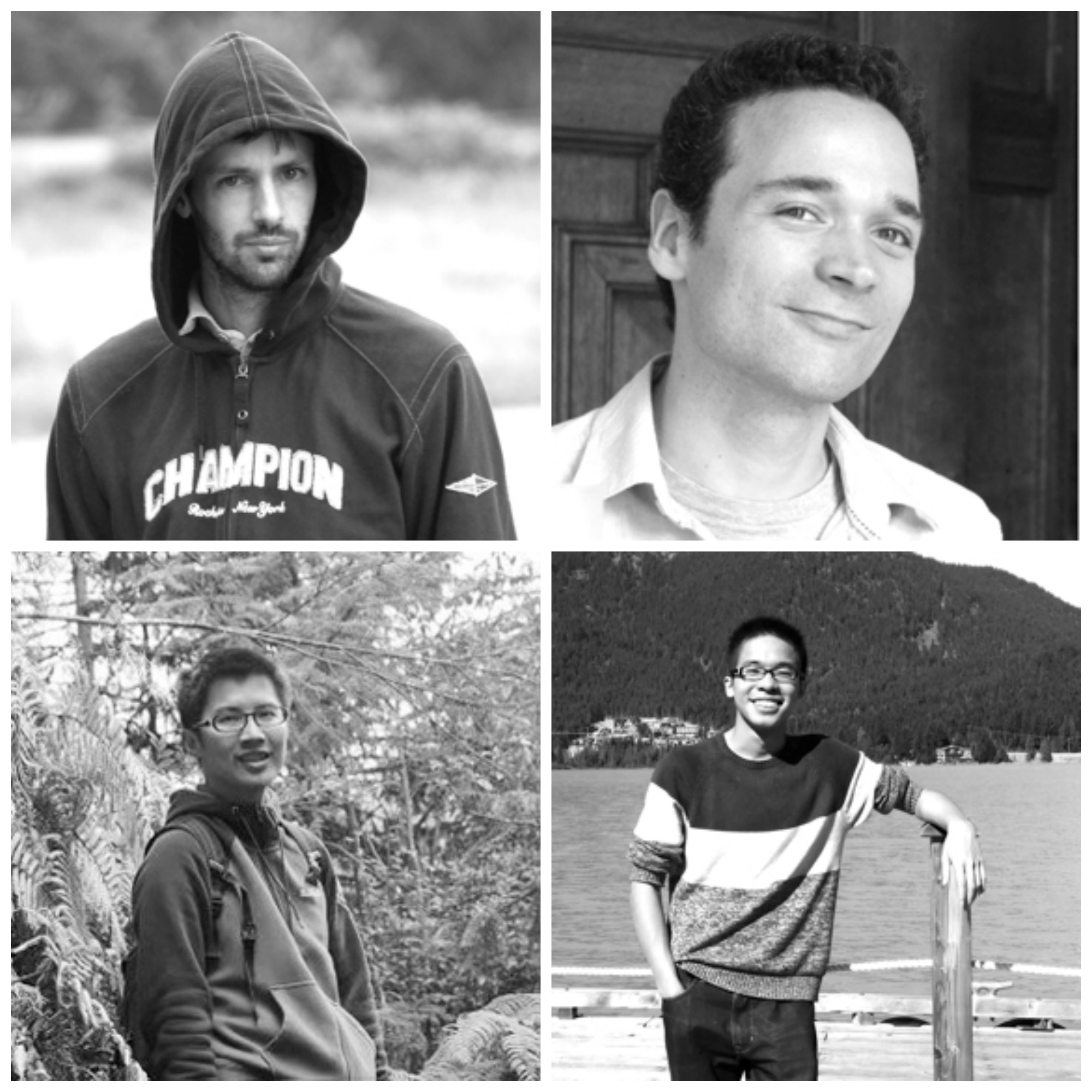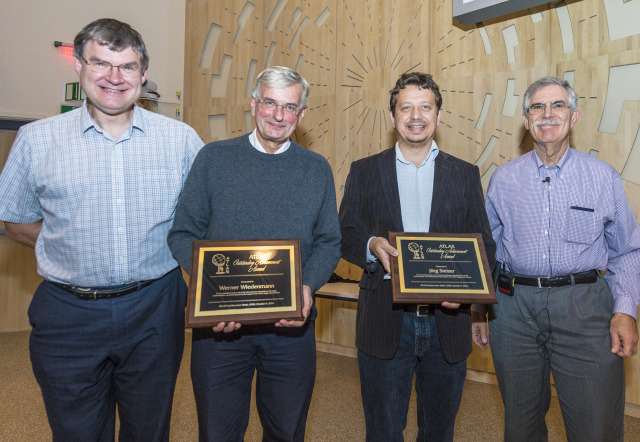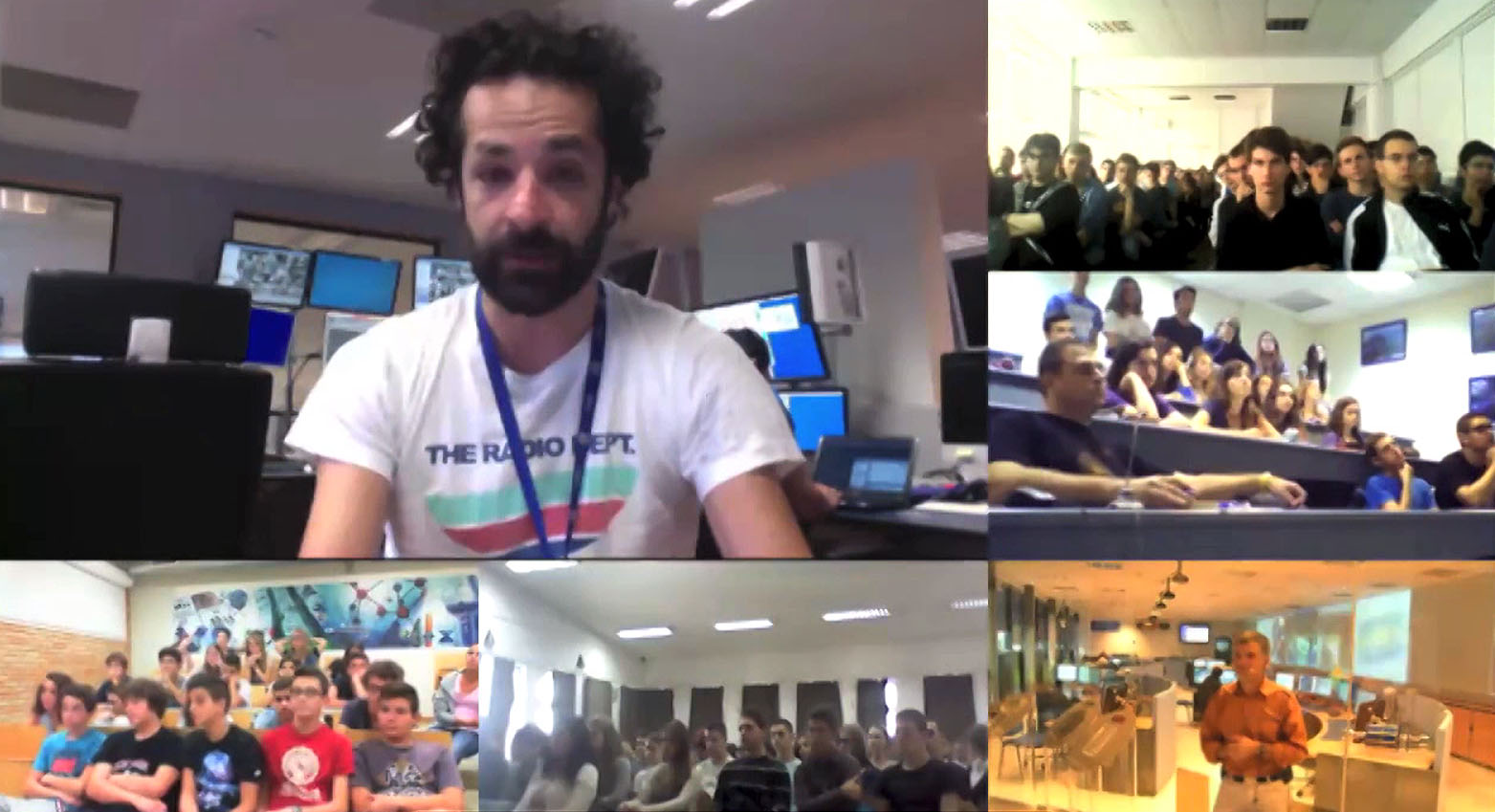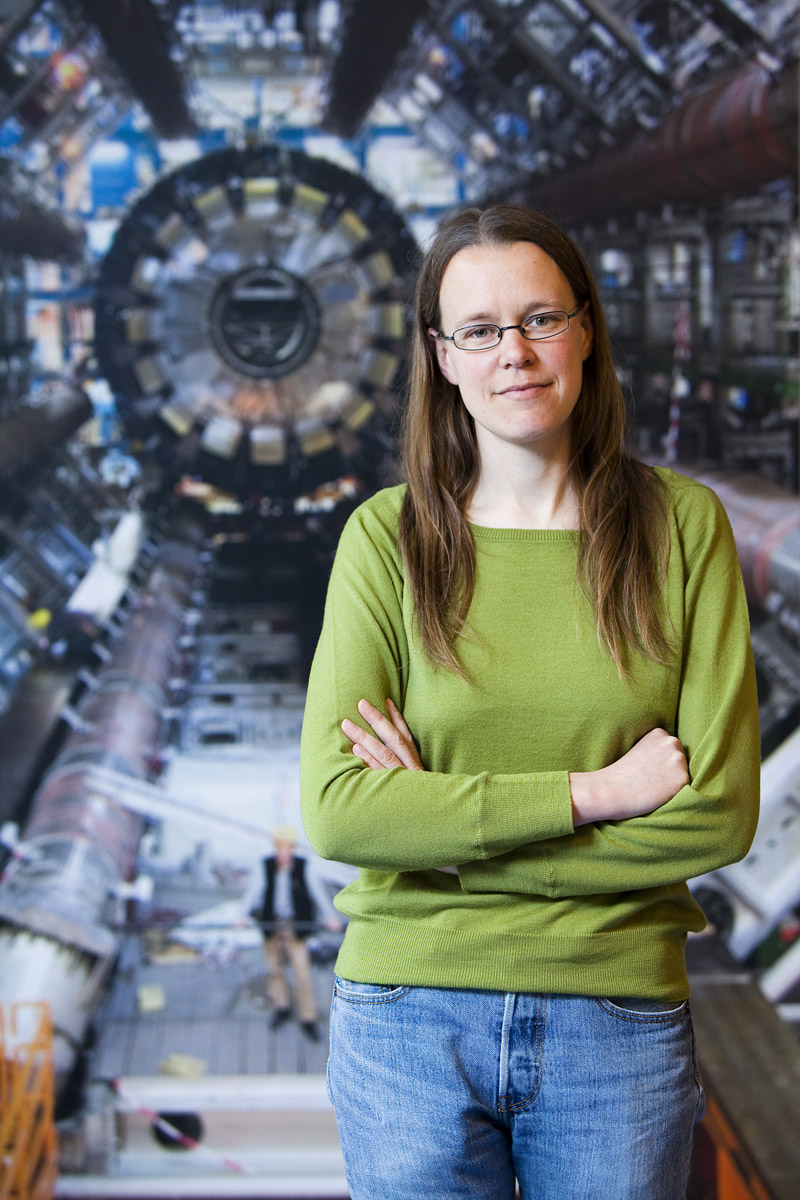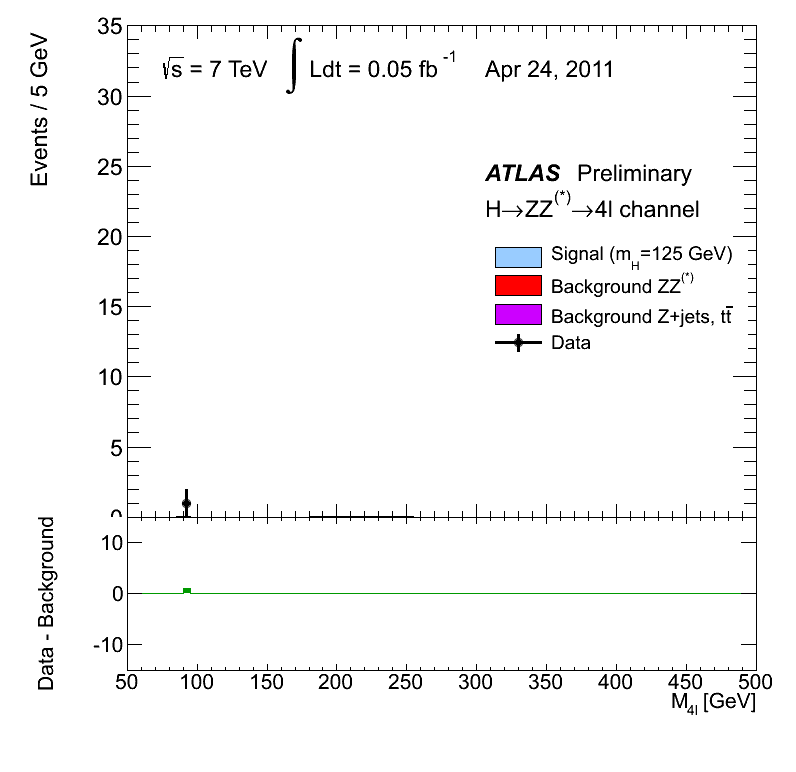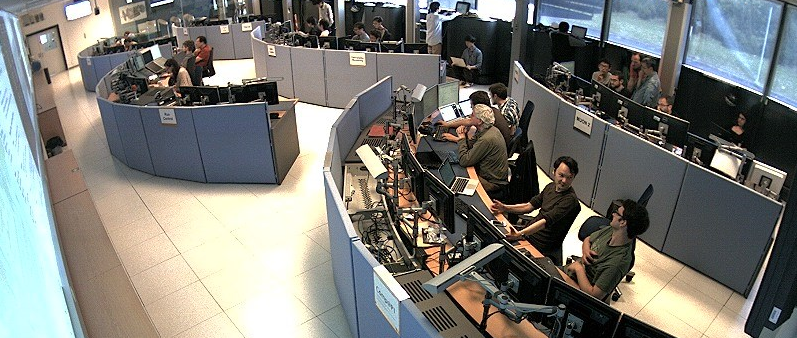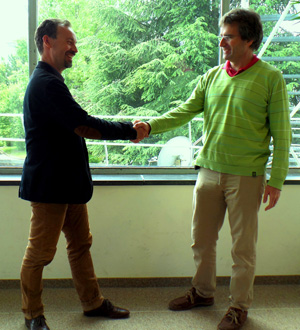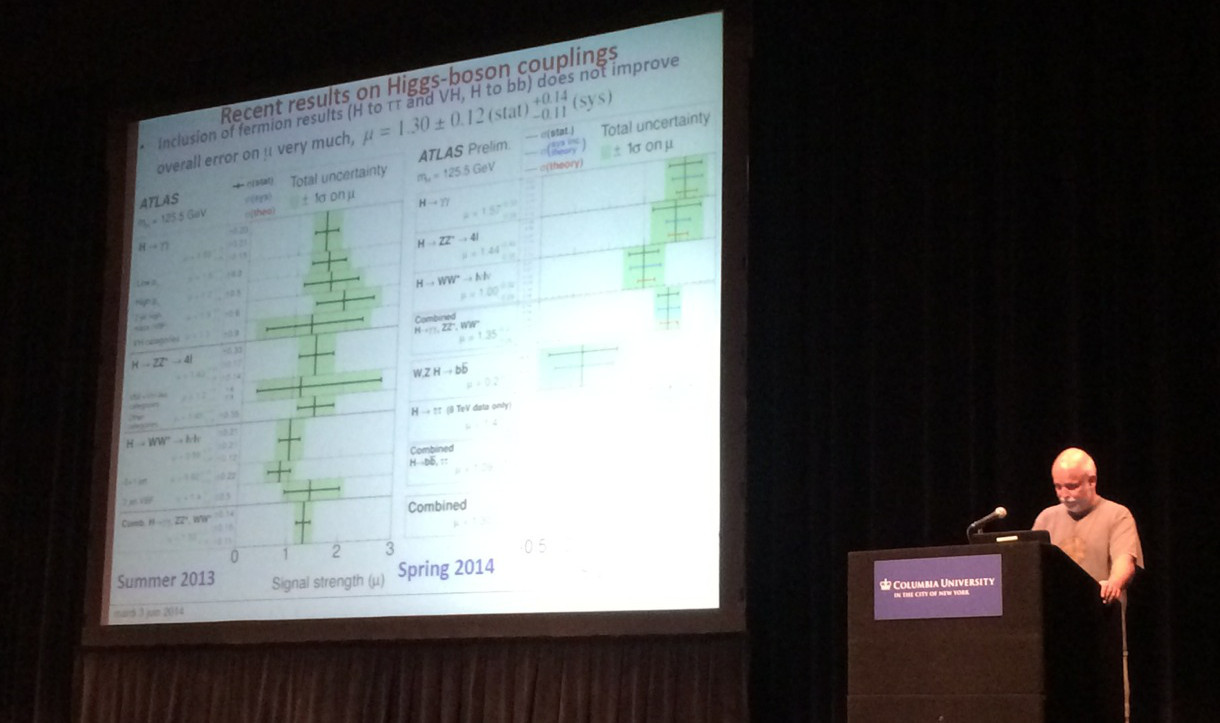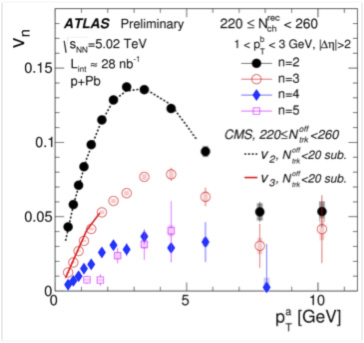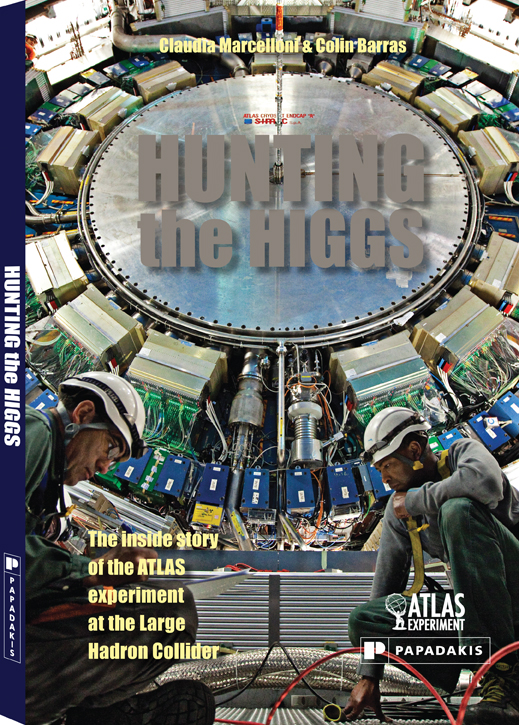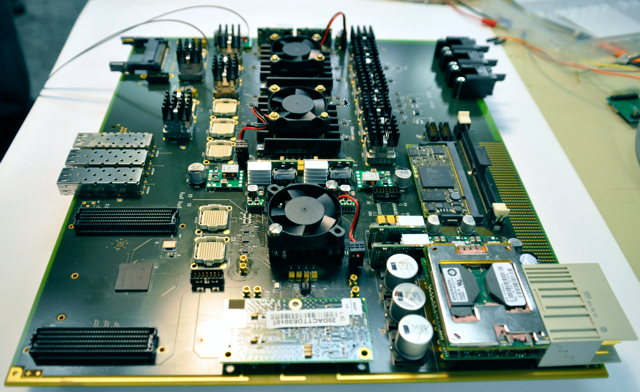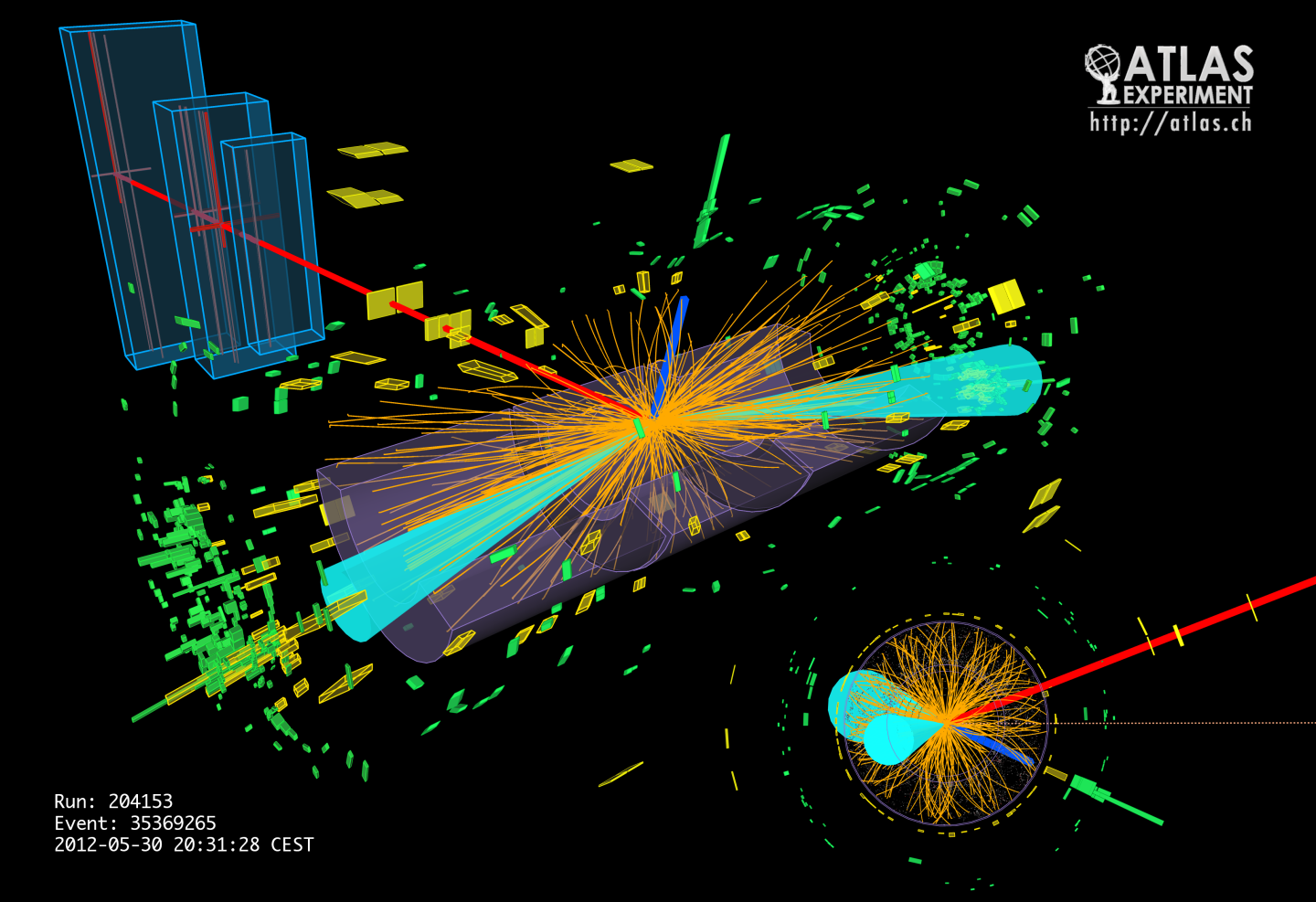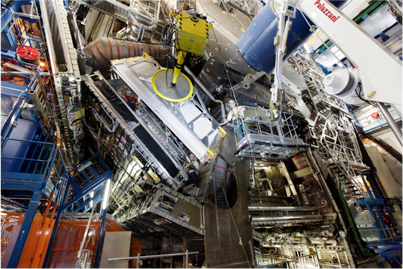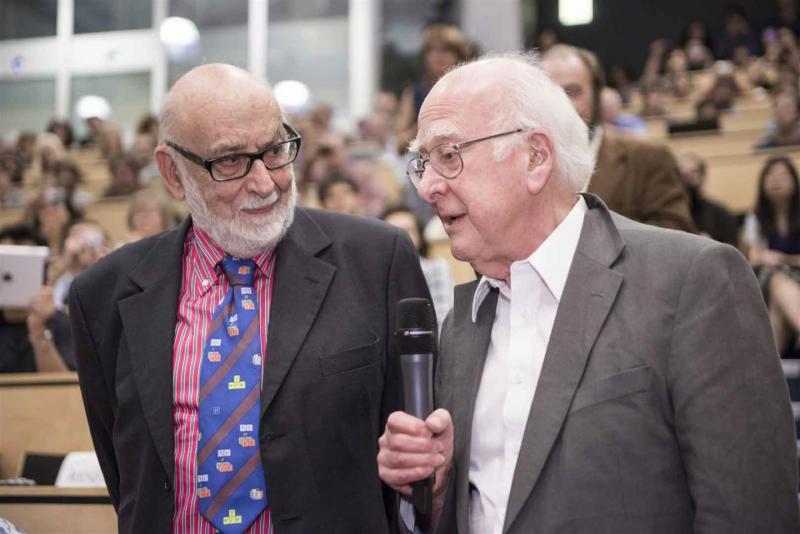News
Handing In the ATLAS Keys
After completing more than 250 work packages concerning the whole detector and experimental site, the ATLAS and CERN teams involved with Long Shutdown 1 (LS1) operations are now wrapping things up before starting the commissioning phase in preparation for the Large Hadron Collider's restart. The giant detector is now more efficient, safer and even greener than ever thanks to the huge amount of work carried out over the past two years.
News |
"Dirt Detectives"
For five days last week, 110 ATLAS collaborators worked in 10 different shifts to help clean and inspect the detector and the cavern that houses it before the toroid magnets are turned on.
News |
The ATLAS experiment on Scholarpedia
An overview of the ATLAS experiment written by physicists Monica Dunford and Peter Jenni has been published on Scholarpedia. The article is the first in the series on experimental high-energy physics that the editors of the subject hope to host on the website.
News |
Join the Higgs Hunt
Higgs Hunters, the first particle physics venture on Zooniverse, a citizen science project, has been launched in collaboration with the University of Oxford, New York University and the ATLAS Experiment. Higgs Hunters invites online volunteers to participate in studying the properties of the new boson, which may hold clues as to what lies beyond our current understanding of the universe.
News |
Machine Learning Wins the Higgs Challenge
The winner of the four-month long Higgs Machine Learning Challenge, launched on 12 May, is Gábor Melis from Hungary, followed closely by Tim Salimans from The Netherlands and Pierre Courtiol from France. They will receive cash prizes, sponsored by Paris-Saclay Centre for Data Science and Google, of $7000, $4000, and $2000 respectively. The three winners have been invited to participate at the Neural Information Processing Systems conference on 13 December in Canada.
News |
ATLAS Awards Achievements in Run 1
The ATLAS Outstanding Achievement Awards 2014 were given on 9 October to five individuals or teams of physicists and engineers for their contributions during the Large Hadron Collider's first run in all areas of ATLAS except physics analyses.
News |
Five schools virtually visit ATLAS, CMS and IceCube
The ATLAS and CMS experiments hosted a virtual visit together with the IceCube Experiment in the South Pole for students from five different European schools on 2 October. The visit allowed the students to interact with researchers in both the LHC experiments and the IceCube experiment. The virtual visit was a second event in the Open Discovery Space project series' 'Bringing Frontier Science to Schools'.
News |
ATLAS Physicist Wins Young Scientist Prize
For her contribution toward the discovery of the Higgs boson, Kerstin Tackmann was awarded the Young Scientist Prize in Particle Physics 2014 by the International Union of Pure and Applied Physics.
News |
Second anniversary of the Higgs boson discovery!
It’s been two years since the ATLAS and CMS experiments at CERN jointly announced the discovery of a new boson consistent with the Higgs particle of the Standard Model. Since then, the Higgs boson has been intensely examined. We’ve measured its spin, its mass, its lifetime, and observed its decay into bosons and fermions. In the next run of the Large Hadron Collider, we hope to learn more about how it interacts with other particles and to make many more precise measurements of its properties. By doing, we hope to extend the limits of our current understanding of the fundamental components of nature, and to seek clues for discovery.
News |
Music of the "LHC"
The ATLAS & CMS experiments celebrate the second anniversary of the discovery of the Higgs boson. Here, are some images of the path from the LHC's startup to the Nobel Prize, featuring a musical composition by Roger Zare, performed by the Donald Sinta Quartet, called 'LHC'. Happy Discovery Day!
News |
The Symphony of ATLAS
Bringing the nine-storey high, many-layered ATLAS detector back to life and preparing it for the Large Hadron Collider's next run is a complex task. Each sub-detector is setup and thoroughly tested before they are joined and the detector as a whole can begin recording data again.
News |
Are You Up for the Higgs Challenge?
It's been four weeks since the four-month long Higgs Machine Learning Challenge was announced. Almost 700 teams have signed up and more than 200 have beaten the in-house benchmark already.
News |
Higgs Mass to String Balls
ATLAS presented new results at the Large Hadron Collider Physics (LHCP) Conference in Columbia University, New York, 2 to 7 June. Many new searches and improved measurements were presented, among which were an updated Higgs boson mass measurement, a search for double Higgs boson production and new searches for Supersymmetry and exotic phenomena.
News |
A New Sub Detector for ATLAS
Closest to the beam pipe where particle collisions will occur in the very heart of ATLAS, a new sub-detector – the Insertable B-Layer – was put in place on 7 May. The IBL team had been developing and practicing the insertion procedure and tooling for two years because of the operation’s delicate nature.
News |
New results from ATLAS at Quark Matter 2014
ATLAS has prepared a variety of new results for the Quark Matter 2014 conference using lead-lead (Pb+Pb) and proton-lead (p+Pb) data collected during Run1.
News |
ATLAS Book Wins the IPPY Awards
"Hunting the Higgs", published by Papadakis Publishers in collaboration with the ATLAS Experiment won the Bronze prize in the Science category of the Independent Publisher Book Awards.
News |
ATLAS Cavern Banjo Video Wins Third Place
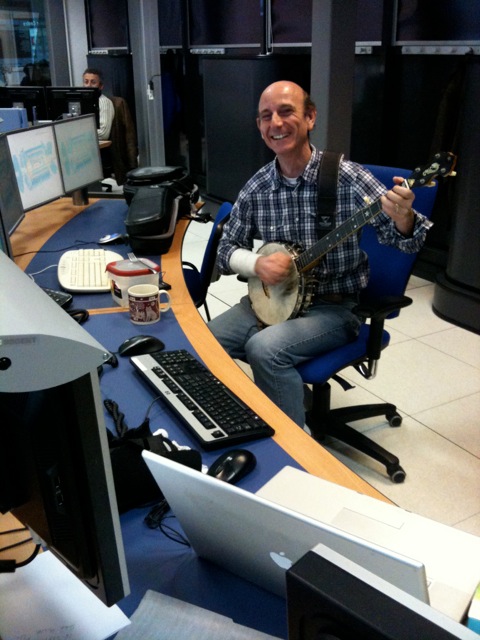
News |
"A hard day, with so much beauty"
ATLAS physicists travelled with Physics Without Frontiers 2014, a project run by International Centre for Theoretical Physics (ICTP), to three Palestinian universities this April to share the joy of scientific research with 140 students.
News |
ATLAS Connects with Science Fest Visitors
On 5 and 6 April, Michigan State University's ATLAS physicists who are based at CERN connected virtually via video-conference to visitors attending the annual Science Festival in East Lansing, USA, to talk about particle physics and what it is like to be a physicist.
News |
Five Outstanding Students Win ATLAS Thesis Awards
The ATLAS Thesis Awards recognize some of our postdoctoral colleagues who have made exceptional contributions to the experiment, across all areas, in the context of a PhD thesis.
News |
ATLAS PhD Grant Scholars Announced
The first recipients of the ATLAS PhD Grant were presented with a certificate on 11 February at CERN by the programme’s selection committee. The three scholars, Lailin Xu of China, Josefina Alconada of Argentina, and Gagik Vardanyan of Armenia, were delighted at being able to continue their PhD programmes at CERN.
News |
Dealing With Data
In the first run of the Large Hadron Collider, almost a billion proton-proton collisions took place every second in the centre of the ATLAS detector. That amounts to enough data to fill 100,000 CDs each second. If you stacked the CDs on top of each other, in a year it would reach the moon four times. Only a small fraction of the observed proton–proton collisions have interesting characteristics that might lead to discoveries. How does ATLAS deal with this mountain of data?
News |
Higgs into fermions
The ATLAS experiment released preliminary results on 26 Nov 2013 that show evidence, with a significance of 4.1 standard deviations that the Higgs boson decays to two taus, which are fermions. This is exciting news. But what makes this measurement important?
News |
Full Coverage for ATLAS Muons
Hold out your hand and in one minute hundreds of muons will have passed through your palm. Muons are one of the high-energy cosmic ray particles that can pass through most solid structures – even the ATLAS detector’s calorimeter, which is designed to absorb particles and measure their energy. A specific system is required to measure muons. Until now, the ATLAS muon system was almost completed, but not quite. The last of the 62 chambers in the Extended Endcap (EE) region was installed just before summer this year.
News |
Englert and Higgs get the Nobel
On 8 October, the 2013 Nobel Prize in physics was awarded to Professors François Englert and Peter Higgs "for the theoretical discovery of a mechanism that contributes to our understanding of the origin of mass of subatomic particles, and which recently was confirmed through the discovery of the predicted fundamental particle, by the ATLAS and CMS experiments at CERN’s Large Hadron Collider".

